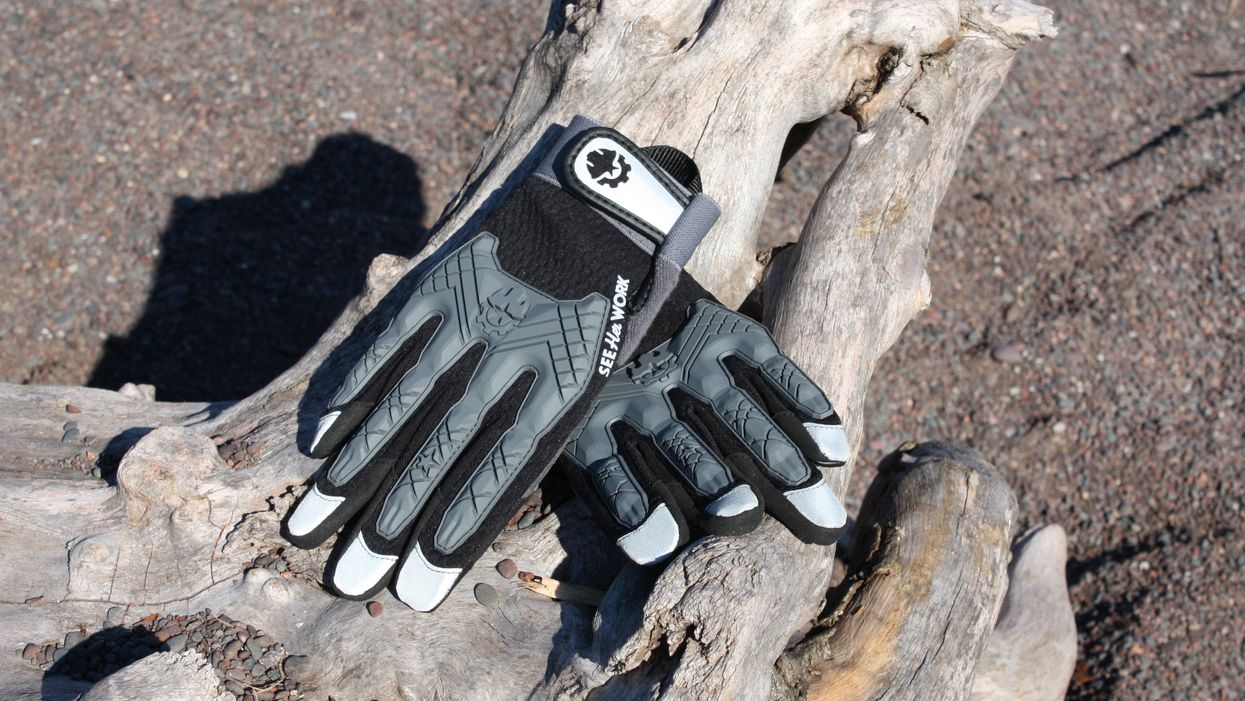Houston company aims to equally equip female workers
If the glove doesn't fit
When Jane Henry was working on her home right after Hurricane Harvey — her house got three feet of mud in it — she went to throw a board into the dumpster, and her glove went with it.
Henry says the industry standard is to recommend small and extra-small sizes for women's workwear, but as a ladies large in athletic gloves, Henry still had a good inch or so of glove at her fingertips in her workwear gloves.
"I went upstairs to my sewing room, and I ripped that glove apart and I resewed it to fit my hand," Henry says.
Other women stopped her in hardware stores to ask her about her shoddily sewn glove, and she realized this was the idea for next company. She incorporated SeeHerWork a few months later in January of 2018, and she launched her line of clothing in September, just a year after she had the idea. Based in Houston, SeeHerWork rents warehouse space in Kingwood and has its corporate office in Midtown.
Doing the legwork
Henry is no stranger to the startup game. She created her own consulting company, Xcution Inc., over 16 years ago, but she downsized the company in 2016 when oil prices took a turn. Instead, she went into Rice University's MBA program, where, ultimately, she created a network of associates that would eventually help SeeHerWork grow.
"I've been a serial entrepreneur — been trying to avoid calling myself that," says Henry. "I have two entrepreneurial parents, and I told myself I'd never be an entrepreneur, yet that's what I keep doing."
Through her business expertise and education, she knew she had to start with a one-page business plan for the company. She then took her idea to over 50 focus groups made up of 10 to 20 female workers, safety managers, and procurement managers across industries — transportation, military oil and gas, engineering, and more.
"The response was eerily similar despite the industry," Henry says.
The focus group participants were tired of the "pink it and shrink it" approach to women's workwear and equipment. They felt like if their supplies don't fit, they don't fit. Mentorship opportunities and performance are then subsequently hindered, creating a spiral effect of deterring women from entering the skilled labor workforce. This is a huge problem, considering there's the recent labor shortage with these types of jobs.
She took this information and her first prototypes to a national pitch competition to great success — and a standing ovation. Henry also connected with the Rice Angel Network, Station Houston, The Cannon, and other local innovation-focused entities.
Roadwork ahead
Henry has big plans for SeeHerWork, and is in talks with a few large entities — like the Houston Airport System, Fluor Corp., and Toyota — that have expressed interest in using her gear for their workforce. Henry also wants to expand her products and reach female workers through retail — online and in store.
"Ultimately, SeeHerWork is the Lululemon of workwear," Henry says.
SeeHerWork is focused on keeping women safe, firstly, but also encouraging more women to enter the skilled labor workforce and then work their way up the ladder.
"I don't want people to think of us as a workwear company," Henry says. "I want them to think of us as an inclusion company. Mostly because just like professional sports team, the first step is the right clothing and equipment and the second step is working to be a team and working together."




 Apple doubles down on Houston with new production facility, training centerPhoto courtesy Apple.
Apple doubles down on Houston with new production facility, training centerPhoto courtesy Apple.





